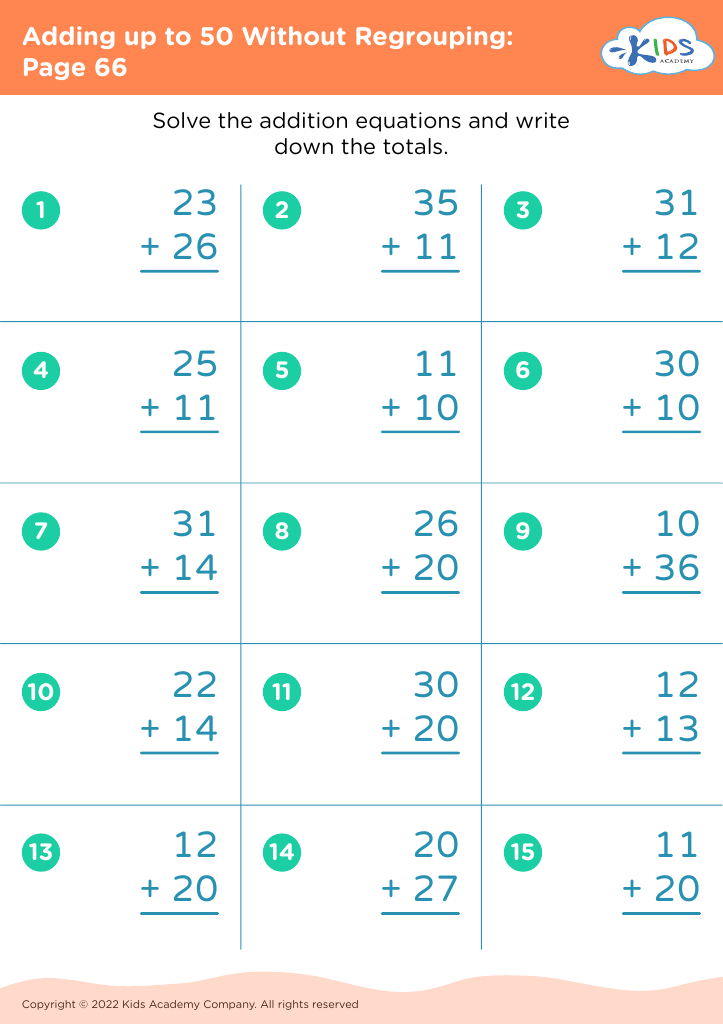Practice division Addition Worksheets for Ages 4-9
3 filtered results
-
From - To
Enhance your child's math skills with our engaging Practice Division Addition Worksheets for ages 4-9! Perfect for young learners, these worksheets are designed to make arithmetic fun and easy. They seamlessly combine division and addition exercises to build fundamental understanding, boost confidence, and develop problem-solving abilities. Tailored to fit different learning paces, each worksheet features colorful, age-appropriate illustrations that capture children's interest. By integrating interactive and challenging problems, our worksheets ensure children grasp essential mathematical concepts in a supportive, encouraging environment. Start your child's educational journey with our expertly crafted, skill-building practice sheets!
Parents and teachers should place considerable importance on practicing division and addition for children ages 4-9 as these foundational math skills are critical for the child's future academic success and everyday life. At this age, children's brains are highly malleable and primed for learning, making it an ideal time to introduce and solidify basic arithmetic concepts.
Practicing addition aids children in understanding numerical relationships, patterns, and the concept of cumulative increase. Grasping these ideas early enables them to tackle more complex math operations with ease later on. Mastery of addition boosts a child's confidence, enhancing their eagerness to learn more challenging topics.
Introducing basic division helps children understand the concept of equal distribution and sharing. While formal division might be more advanced, early exposure through simple, practical problems—like distributing toys among friends—lays groundwork for future learning. Division also encourages logical thinking and problem-solving skills.
Focusing on these skills improves school performance, supporting overall academic growth as math is an integral part of science, technology, and many other subjects. Moreover, daily life requires basic arithmetic for tasks such as counting money or following recipes. Prioritizing these skills ensures children are well-equipped with essential tools for their future endeavors.























